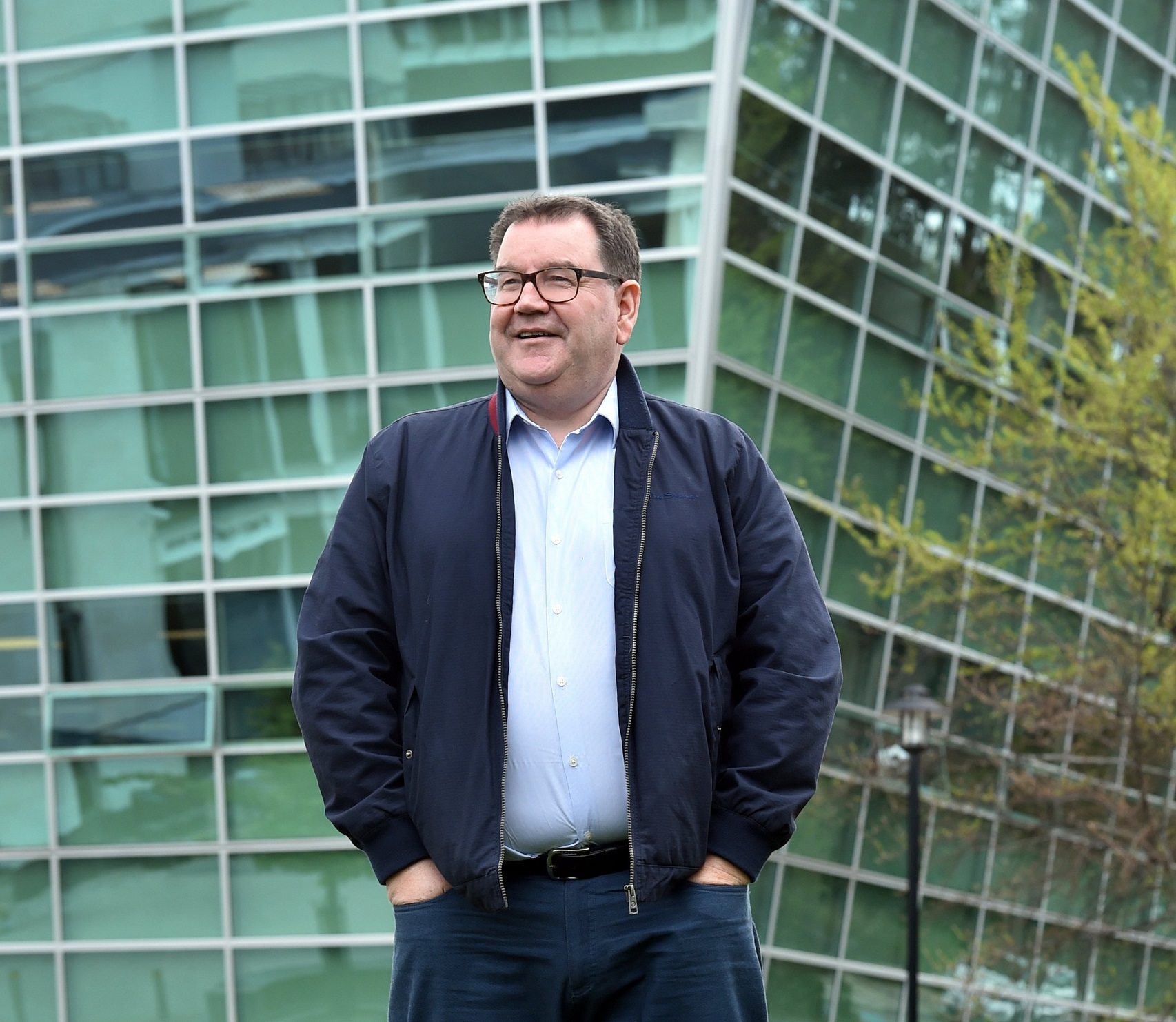Grant Robertson says a lot of the hard work to find savings at the University of Otago has been done, and he is keen to look at opportunities for revenue.
The university vice-chancellor and former finance minister and deputy prime minister has got his feet under the table and is looking forward to next year — with challenges to recruit international students, look at new ways to find revenue and work on the relationship between students and the university itself.
He said his first 100 days had been a bit of a whirlwind — but compared his role to that of recently reappointed Highlanders rugby coach Jamie Joseph.
"It's not a one-year project for him. It's a multi-year project and the team will build up."
This was not too different from his own vision, Mr Robertson said.
"There’s still a lot to learn, and still a lot that I'll need to talk to people and listen to people about.
"But I'm feeling more comfortable every day."
The university’s standing had recently dropped in the Times Higher Education (THE) 2025 international ranking, but Mr Robertson said it was important to keep such rankings in perspective.
"You've got to be a little bit careful about ranking systems.
"Obviously, no-one likes going down ... I think there are external forces on us in terms of universities that have made that quite tough."
The university was working through ways to improve its ranking performances, but Mr Robertson said even on that front the news was not that gloomy.
"We've been quite pleased with how we did recently in the QES five stars ranking, which looks at a slightly broader set of indicators than the THE one that came out the other day.
"The things that are inside our control is making sure that we invest properly in our buildings, systems and environment to ensure students and staff have got the resources that they need to back up their work.
"We do need to make sure we're supporting the researchers, getting them in front of the funding systems and funding people that they need to be a part of."
The university also needed to lift its international profile, Mr Robertson said.
"We're seeing more interest now from international students this year than we have in the past couple of years.
"We've worked a bit harder on tailoring our offering to where we think international students might want to be in terms of subjects and areas."
The response to the university’s domestic campaign — which features The Clean’s Tally Ho — had also been "positive" so far and he felt the university was in a better place than the previous few years, where major restructuring had taken place in response to deficits and lower-than-projected student numbers.
"I want to congratulate the staff at the university for what they have done to find savings.
"So there's a bit more work to do there ... but a big part of it for me is also looking not just at how we save money but how we generate more revenue."
Mr Robertson was passionate about the possibility of increasing the university’s presence in Queenstown, with a view to turning it into a research hub.
"I think what you'll see over the next six months to a year is more presence of us doing seminars up there, running executive education programmes, perhaps aspects of our MBA programme and some small research projects, while we work towards a more long-term idea of providing kind of tailor-made curriculum for the research and innovation sector."

Miss Crestani was killed at a flat party after a crush in a stairwell.
Mr Robertson acknowledged the findings were "sobering".
He said initiatives such as the Sophia Charter had gone some way to addressing culture issues.
"The awful situation for the Crestani family is this is five years on ... they've been carrying around the grief of this, and I hope the coroner's outcome has given them the ability to move forward a few more steps.
"But obviously, in the time between 2019 and 2024, a lot's changed.
"There's a lot more proactive work by the proctor and his team around talking to people about parties and about how they're run.
"The coroner has gone on to make a recommendation that we should consider the way our disciplinary procedures are used, and we are going to do that."
Discipline regulations had been debated in the university for decades, he said.
"There's kind of an inherent tension between what's the university's role in the private lives of students, so the coroner talked about that.
"I really do back what Campus Watch does around the campus. It's unique to Otago to have something like that."
Recently, Mr Robertson has expressed concern about the government’s proposal to establish a third medical school at the University of Waikato, as well as proposals to down-scale the new Dunedin hospital project.
He has expressed confidence the Otago and Auckland universities could train more doctors in a more efficient way.
He has also expressed concern about the viability of the new hospital as a teaching hospital if the new Dunedin hospital project is down-scaled.
Such issues would likely be front-and-centre over the "next 100 days" for the former finance minister and deputy prime minister.
"Over the course of the next few months, we do have to complete the budget for the university for next year, and that's a big job," he said.
"We've also been getting into the weeds and making sure that we reduce as much as possible the number of clashes that students might have.
"If we can reduce those clashes, more students will enrol because they'll be able to do the programmes that they want to do.
"I'm really keen on making sure we nail that and get that right."
So what has surprised Mr Robertson upon his return to Dunedin?
"I think more it's an emotion of kind of being reminded of things.
"I just keep being reminded of how many great people there are doing amazing things. You go to a professorial lecture, or I go and visit a department or whatever, and I just think this place is extraordinary, you know.
"So it's more just that sense of appreciation of what's happening here. Maybe I needed to be reminded of that rather than being surprised by it."












